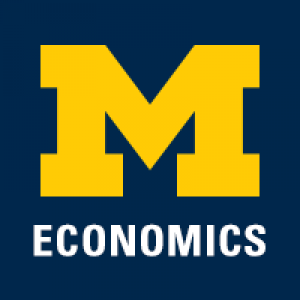Presented By: Applied Microeconomics/Industrial Organization
Applied Microeconomics/IO
From Randomization to Out-of-Sample Prediction: A Structural Approach to Counterfactual Treatment Assignment in the Presence of Endogenous Network Formation presented by Alan Griffith, University of Michigan

Abstract: The past two decades have seen an explosion of applied economics research on peer effects. However, attempts to leverage peer effects by creative group assignment have often failed to account for endogenous peer group formation conditional on group assignment, leading to erroneous inference, especially when forecasting out-of-sample policies. I address this shortcoming within the context of a randomized evaluation of the effects of a girls’ extracurricular program in rural Rajasthan. I first show that the program under study has substantial heterogeneous treatment effects, and that the program, which only involves participation by a fraction of the girls in each school, leads to substantial differential network formation. I further exploit detailed network data to document a number of stylized network facts. Building upon these stylized facts, I then develop and estimate a model of network formation and non-linear peer effects in which actors make continuous linking decisions subject to a total effort constraint. Outcomes are determined by a model that allows for heterogeneous peer effects. I estimate the model using extensive longitudinal network and outcome data, and show that the model’s predictions perform well when compared to realized out-of-sample outcomes. Finally, I simulate expected outcomes for a counterfactual policy that preferentially assigns lower caste girls to participate in the program, finding that this leads to higher educational aspirations but lower attitudes about gender roles when compared to random assignment.
Explore Similar Events
-
Loading Similar Events...
